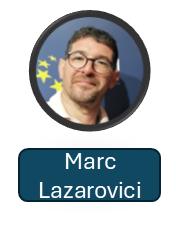UNIT 8 – What Does it Take to be Professional?
Summary
In the realm of managing and operating simulation centers, the pursuit of professionalism is paramount to attaining true organizational excellence. This chapter delves into the intricate balance between structured organization and adaptive flexibility that underpins professionalism.
The metaphor of a well-oiled clock is often used to represent an idealized level of organization. However, as humorously depicted in an extract of the movie “The Incredibles”, an excess of rigid organization can paradoxically hinder progress and stifle the very excellence it aims to cultivate. True excellence, as Peter Dickman eloquently stated, “lies in the capacity to adapt successfully to the dynamic variations of any situation.”
Professionalism transcends mere appearances or superficial markers. It is a state of being, manifested through competent actions and an unwavering commitment to delivering one’s best. Akin to a finely tuned orchestra, professional organizations harmonize their efforts through a judicious blend of structure and creative latitude.
To embody professionalism, organizations must establish a robust framework tailored to their unique context. This entails clarifying the governing rules, be they external regulations or internal codes of conduct. Additionally, a clear delineation of the target audience and the corresponding resources – personnel, facilities, and materials – is crucial. However, this framework must be imbued with sufficient flexibility to accommodate the inevitable ebbs and flows of real-world scenarios.
Once an organization has internalized professionalism, the question arises: should it actively showcase this achievement to external stakeholders? Various avenues exist, including sought-after accreditations, quantifiable metrics such as scientific output, or public recognition through ratings and awards. Whichever path is chosen, the motivation must be carefully examined to ensure alignment with the organization’s core values and objectives.
For those pursuing accreditation, programs at national, specialty, or international levels are available. The process is rigorous, requiring a meticulous examination of existing processes and a lengthy preparation period. Notable accrediting bodies include the Society for Simulation in Healthcare (SSH) in the United States and the Association for Simulated Practice in Healthcare (ASPiH) in Europe.
Narrator of this video:

UNIT Contents:
